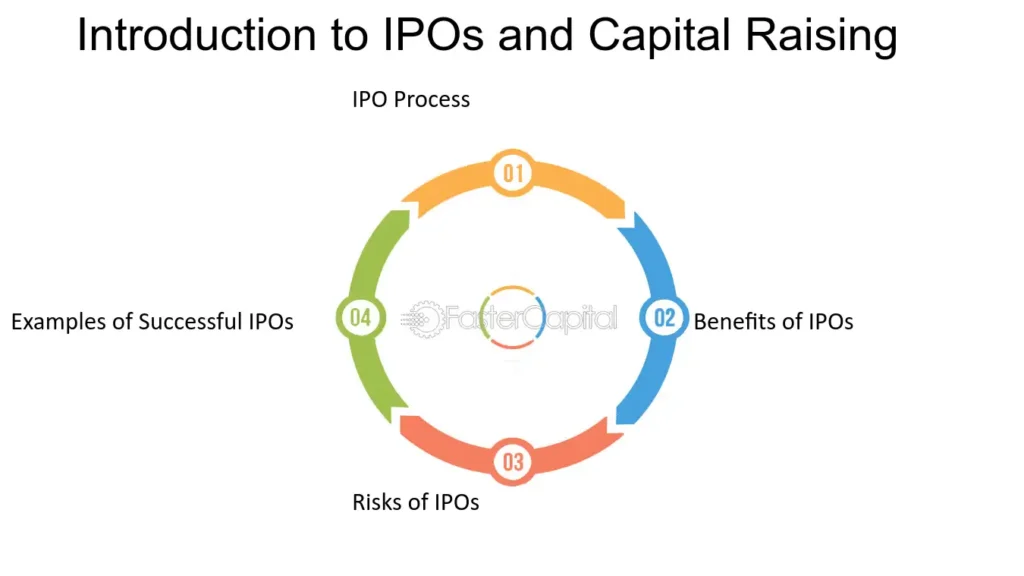An Initial Public Offering (IPO) is a major step for any business, signaling its transformation from a private company to a publicly traded entity. For many businesses, the decision to go public is driven by the need for capital, growth opportunities, and the desire for enhanced visibility. However, while an IPO can offer numerous benefits, it also comes with substantial risks and challenges. In this article, we’ll explore the key considerations to take into account before deciding whether an IPO is the right move for your business.
What Is an IPO?

An IPO is the process through which a privately-held company offers its shares to the public for the first time. By going public, a company can raise capital from a wide range of investors, which can be used to expand operations, pay off debt, or fund new projects. In return, the company’s stock becomes publicly traded on a major stock exchange like the New York Stock Exchange (NYSE) or NASDAQ, providing liquidity for its shareholders.
Why Do Companies Go Public?
There are several reasons why businesses opt for an IPO:
- Raising Capital: Going public is a way to raise substantial capital that can be reinvested into the company’s growth, expansion, or new business ventures.
- Enhanced Public Profile: An IPO can significantly increase a company’s visibility and credibility in the market, attracting potential customers, partners, and investors.
- Liquidity for Investors: Existing investors, such as early-stage investors, employees, and company founders, can sell some of their shares, creating liquidity.
- Acquisitions: Publicly traded companies can use their stock as a currency for mergers and acquisitions.
Is an IPO Right for Your Business? Key Considerations
Deciding whether to pursue an IPO is not a decision to be made lightly. The process involves rigorous planning, significant financial and legal responsibilities, and increased scrutiny from regulators and the public. Here are key factors to consider before taking your business public:
1. Financial Stability and Performance
Investors want to see consistent growth and strong financial performance before they invest in your company. As a private company, you have more flexibility in how you report and manage your finances, but once you go public, you’ll be required to disclose detailed financial information to the public.
Consider the following questions:
- Is your business financially stable? Going public requires transparency, and investors will expect a company with solid financials, positive cash flow, and profitability.
- Do you have a growth trajectory? Investors are more likely to invest in companies that show promise for future growth, so having a clear path to profitability is essential.
2. Market Conditions
Market conditions play a critical role in the timing of an IPO. If the stock market is experiencing volatility or economic uncertainty, it may not be the right time to go public. On the other hand, a strong market can drive demand for your stock and boost the value of your IPO.
Consider:
- Are market conditions favorable? You should carefully monitor the market before making an IPO decision. A favorable market increases the chances of a successful offering, while a weak market may hurt your valuation and investor interest.
- Is there investor demand for companies in your industry? The success of your IPO also depends on whether investors are interested in your specific industry or business sector. For instance, tech companies may be in high demand during periods of market growth for innovation, while other sectors may not experience the same level of investor enthusiasm.
3. The Cost and Complexity of Going Public
The IPO process involves significant legal, accounting, and underwriting fees. Companies must also invest in public relations and marketing efforts to generate interest in their IPO. Once your company is public, there are ongoing costs related to regulatory compliance, reporting, and governance.
Key questions to consider:
- Can your business afford the costs? The IPO process is expensive, and you need to have the financial resources to cover underwriting fees, legal costs, and the expenses of ensuring compliance with public company standards.
- Do you have the necessary infrastructure? Being a public company means meeting regulatory requirements, which includes maintaining an internal team for SEC filings, quarterly earnings reports, and annual audits. Is your business equipped to handle the demands of being a public entity?
4. Corporate Governance and Accountability
As a public company, you’ll be subject to increased scrutiny from regulators, investors, and the media. Publicly traded companies are required to follow strict corporate governance rules, including having an independent board of directors, adhering to specific shareholder rights, and maintaining transparency in business operations.
Consider the following:
- Are you prepared for increased oversight? Going public means you’ll be answerable to shareholders, analysts, and regulators. Are you ready to provide regular updates, address shareholder concerns, and comply with governance standards?
- Do you have the right management team? A strong and experienced leadership team is essential to navigating the public markets. Investors want to see capable executives who can execute the company’s strategy and manage the challenges of being a publicly traded entity.
5. Impact on Company Culture
Going public can change your company’s internal dynamics. The pressures of meeting quarterly earnings expectations, managing shareholders, and complying with regulations can be demanding. Additionally, employee stock options and company culture may shift as a result of the IPO.
Think about:
- How will the IPO affect your employees? Will your employees feel more engaged and motivated with the added benefits of stock options, or will they be distracted by the new pressures that come with a public company?
- What impact will an IPO have on your company culture? Maintaining the values and culture of your company after going public may require additional effort. With greater external attention, you’ll need to strike a balance between transparency and staying true to your organization’s culture.
6. Long-Term Strategy and Vision
An IPO should align with your company’s long-term strategy and vision. Going public can help you expand and innovate, but it can also subject your company to short-term pressures, especially when it comes to meeting quarterly earnings expectations. It’s essential to have a clear vision for where you want your company to go and whether an IPO is the best path forward.
Ask yourself:
- Does going public align with your long-term goals? Going public is often a catalyst for growth, but it can also introduce distractions. Does the IPO fit within your strategic plans for expansion and innovation?
- Are you ready for the long-term commitments? The IPO process doesn’t end once you go public. You’ll need to continuously manage shareholder expectations, meet regulatory requirements, and sustain growth. Are you prepared for these long-term obligations?
7. Alternative Funding Options
Before committing to an IPO, it’s worth exploring other financing options. Companies can raise capital through private equity, venture capital, debt financing, or private placements. These options may offer less risk and more control over the business.
Consider:
- Are there other ways to raise capital? If your business is looking for funding but isn’t ready for the pressures of an IPO, you might explore private investments or alternative financing methods.
- Can you maintain control of your business? Going public means diluting ownership and giving up a level of control. Other funding options, such as venture capital, may allow you to raise capital while retaining more control over decision-making.
Also Read: The Ipo Process Explained: How Companies Go Public
Final Thoughts
Deciding whether an IPO is the right choice for your business requires careful consideration of financial performance, market conditions, costs, and long-term goals. While going public can provide significant advantages such as raising capital and enhancing your company’s profile, it also comes with challenges such as regulatory compliance, shareholder expectations, and increased scrutiny.
Weighing the pros and cons and consulting with financial advisors, legal experts, and investment bankers is critical to making an informed decision. If your business is prepared for the demands of being a public company and aligns with the strategic benefits of an IPO, it could be the perfect next step in your growth journey.
